As I shared in my last Lately post as well as in What I Learned This Winter, my reading in the past month was not the best. While I succeeded in reading out of my comfort zone somewhat, I was not enamored with the novels I read. (But just because they were not a hit for me does not mean you won’t love them.) In addition to some mediocre fiction, I read some pretty great nonfiction this month, as well as two read-alouds (including one book Charleston and I both absolutely loved!). Read on for the full scoop.
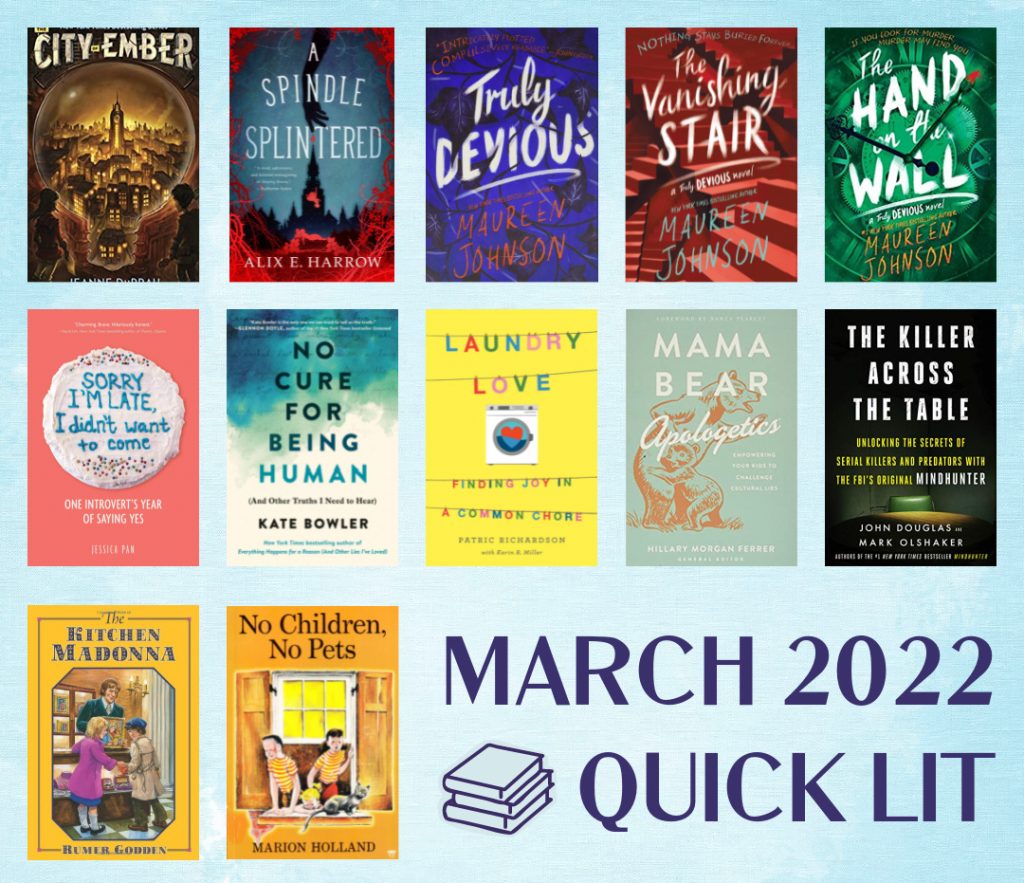
NONFICTION
No Cure for Being Human (And Other Truths I Need to Hear), by Kate Bowler: Kate Bowler had bought into the idea that life was a series of choices, entirely within her control. The American dream was hers for the taking, and life was going pretty well. Then, at 35, she was diagnosed with an incurable cancer and everything changed. Driven by a determination to go on living, and to make the most of the time she had left, Kate endured experimental treatments and rearranged her days around beating her disease, while also attempting to go about business as usual in her career in academics, her mothering of her young son, and her pursuit of the truth about what makes a meaningful life.
I read Kate Bowler’s last book (Everything Happens for a Reason) and have been eagerly anticipating this second memoir. Many have enjoyed this in audio format (because it is read by the author, and I know from hearing her on podcasts that Kate Bowler’s voice is buttery smooth and oh so soothing!), but I read this with my eyes because wanted to truly absorb the messages and Kate’s luxurious prose. Kate Bowler is one of those authors who could transform a phone book into a compelling read: she has the most ridiculously beautiful way with words, softening razor-sharp insights with quirky humor and wry asides. She somehow makes descriptions of medical diagnoses and treatments read like poetry, and her reflections had me chuckling and sobbing, sometimes at the same time. Kate’s writing is so very honest, to the point of making me uncomfortable—which, I assume, is the point. There is zero toxic positivity or wallowing despair, just so much truth about how life is both terrible and beautiful and everything in between. Kate Bowler gives us all permission to simply be, accepting life’s disappointments without having to disingenuously celebrate them, and leaning into hope and purpose even when the world is telling us it’s too late.
While I was swept away by the truth-telling and exquisite storytelling, I struggled to understand the exact purpose of this memoir. It almost felt like a repeat/redo of her last book—Everything Happens was an overview of her life and theology, and No Cure offered a zoomed in look at Kate and her exact experiences. I can see how, as a memoirist, this might have been helpful for her to write, but I’m not sure it serves the reader. There is a lack of direction in the narration, meandering through her contemporary medical experiences and into her past, and at times I found this fluidity difficult to follow. Perhaps, though, this is the intention: in a book about how very little we can control, how life is difficult to understand and even harder to live, maybe there is benefit to a reading experience that doesn’t fit into a tidy box or wrap up with flourishing bows.
Kate Bowler is a person of faith and I was surprised by how little page time is given to the specifics of her beliefs. While I would have loved to hear more on this front, the lack of religious content makes this an easy book to share with non-believers, and in its pages they will encounter the truth and beauty of our God whose presence is felt if not explicitly preached.
My Rating: 4.5 Stars (Rounded down to 4 Stars on Goodreads) // Book Format: Kindle
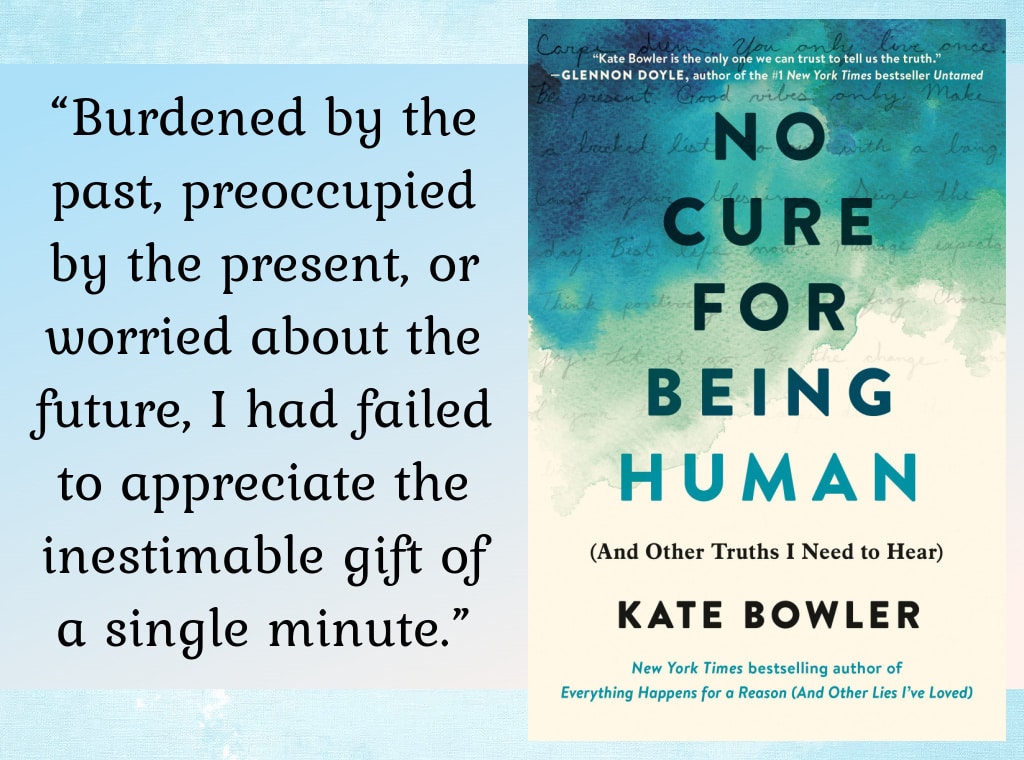
The Killer Across the Table: Unlocking the Secrets of Serial Killers and Predators with the FBI’s Original Mindhunter, by John E. Douglas: As the FBI’s pioneer of criminal profiling, former special agent John Douglas has studied and interviewed many of America’s most notorious serial killers. His experience has guided him in teaching investigators around the world about the criminal mind and how to identify (and perhaps understand) deadly predators. In this book, Douglas spotlights four of the criminals he confronted, recounting each man’s crimes, Douglas’s interviews with them, his observations on each killer’s motives and behavior, and analysis on how these case studies can be used to inform future investigations.
If you have followed my reviews for any amount of time, you’ll recognize this book as an anomaly in my reading life: I am NOT a fan of true crime, and only picked this up (on audio) to satisfy the True Crime category of my library reading challenge. The book solidified my decision to avoid this genre in the future: the descriptions of the crimes are horrifying, far worse than I could have imagined, and a bit much for me to handle. (I’ve read similar brutal descriptions in fiction, but knowing the cases described here actually took place was beyond disturbing.)
Where I was able to look past the ickiness of the crimes committed, I was fascinated by the glimpse into the criminal mind (and into the minds of those who enjoy studying true crime). The cold-blooded men examined in this book are truly diabolical and their level of depravity is horrific, but I couldn’t help but feel intrigued—not just by the killers themselves, but also by Douglas’s ability to decipher each man’s expressions, body language, and the most obscure details. I was surprised by the similarities in these killers, and also by the uniquenesses: serial killers do seem to fit a prototype, but it’s not always what you would expect, and understanding these individuals is far from an exact science.
Douglas does not glamorize these men or attempt to evoke sympathy for them, and their crimes are not sensationalized. He does not excuse or condone their behavior and dismisses the idea that they are victims of mental illness. Descriptions of their crimes are extensive, but the writing is clinical and not gratuitously graphic. Still, the material here is heavy and I would not recommend this for sensitive readers like myself. While I won’t be reading books like this one in the future, it’s reassuring to know that individuals such as John Douglas are doing the difficult work of exploring the inner workings of these criminals in order to track and stop future killers.
My Rating: 3.5 Stars (Rounded up to 4 Stars on Goodreads) // Book Format: Audiobook
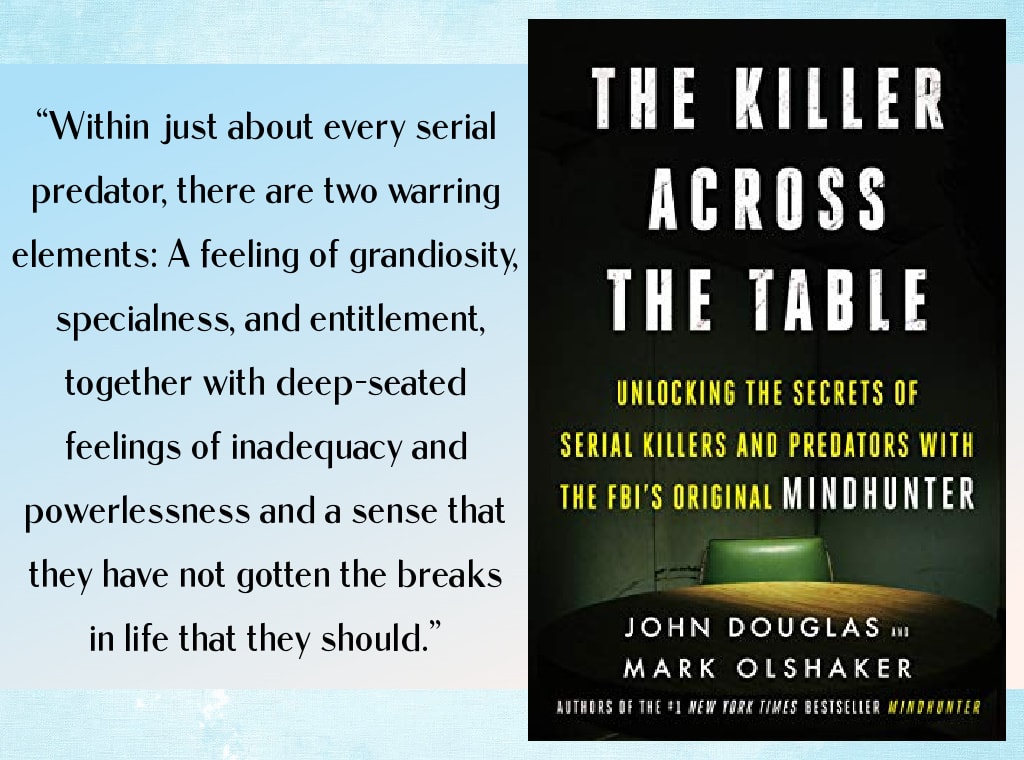
Mama Bear Apologetics: Empowering Your Kids to Challenge Cultural Lies, by Hillary Morgan Ferrer: As a mom, one of my primary roles is to teach my children the truth. And in a world that is increasingly resistant to Biblical ideologies, it is more important than ever for me to be imparting these beliefs to my children myself. I want my children to be so familiar with God’s truth that they can quickly identify and distinguish themselves from falsehoods they will come across.
Enter Mama Bear Apologetics, an online resource and now a book designed to equip moms like me to teach our little cubs how to form their own Biblical beliefs about what is true. The book begins with a call to Mama Bears, explaining why the concept of apologetics is important—not just for Biblical scholars and theologians, but also for moms who want to teach our children well. The authors walk moms through the steps of discernment, then take a deep dive into several cultural lies and ideologies, explaining where these ideas have gotten off track and replacing the lies with truth from Scripture. Among the falsehoods addressed are self-helpism, naturalism, postmodernism, Marxism, and Christian progressivism (you know, totally light stuff—hah!). These ideas might seem foreign or nonthreatening, but the authors illuminate ways they’ve become pervasive in contemporary culture and even in the church, and why these ideologies are so far off base.
I learned a lot from this book and appreciated the clear explanations of terms I was familiar with but didn’t entirely understand. It is helpful for me to better understand these ideas for myself, and this knowledge has equipped me to help my kids navigate them when they show up. In this way, the book succeeded in its aims of helping me to become a better informed faith leader in my own home.
There were aspects of this book I didn’t love, though. The stance is a very black-and-white one, which can be helpful up to a point, but in some instances it brushes over the nuances inherent in some of these areas. I do think that nuance has been overdone in many Christian circles, sacrificing the truth on the altar of tolerance; Christians tuned in to the grey areas have remembered how important it is to whisper on issues where Scripture remains silent, but they tend to neglect the equally important call to shout where Scripture is loud; this book does the opposite, leaning in hard on some topics where I just don’t know that there is grounds to do so. Some of the subjects the book chooses to address seem like peripheral issues to me, or more political than spiritual (preference vs Gospel fact), while less attention is paid to those crucial areas we really do need to get right.
Mama Bear Apologetics is a really helpful resource, but one in which I am choosing to practice the authors’ “chew and spit” approach of taking in the good (most of the doctrine) while leaving some (the condescension and lack of subtlety) behind.
My Rating: 4 Stars // Book Format: Audiobook
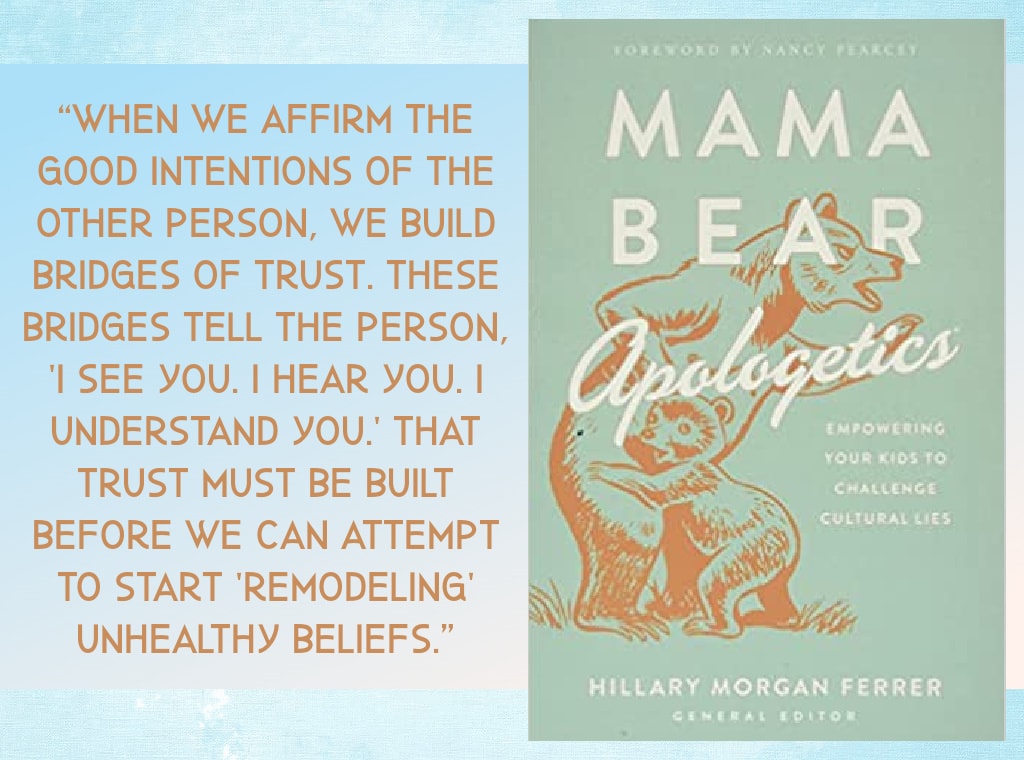
Sorry I’m Late, I Didn’t Want to Come: One Introvert’s Year of Saying Yes, by Jessica Pan: Jessica Pan was a shintrovert (“shy introvert”). And unlike many introverts, who are content in our introverted habits, Jessica wanted to branch out. Eager to become more outgoing, acquire new friends, expand her extracurricular opportunities and increase her social repertoire, Jessica took on the challenge of posing as an extrovert for a single calendar year. With the help of a handful of trusted extrovert mentors, Jessica traveled alone, attended improv classes, performed stand up comedy, talked to strangers, set up friend-dates, and even hosted a dinner party. As she placed herself in one uncomfortable situation after another, she grew in confidence and in understanding of herself, her personality, and her tendencies. She discovered the ways she was willing and able to change, and made friends with aspects of herself that were destined to remain the same.
Sorry I’m Late is hilarious and insightful, merging Jessica’s experiences with commentary and science related to personality type, loneliness, relationships, and general human behavior. The tone is light and uplifting; it is not disparaging towards either introverts or extroverts but recognizes the differences between these two opposites and illuminates a path between them. Jessica is courageous and increasingly confident, but not at all arrogant; she seems like someone I would love to meet for coffee (even though we would both need to press ourselves to come!).
I stumbled across this book while perusing audiobooks on Hoopla and was intrigued by the title: like Jessica, I am an introvert, but not a shy one—I’m generally pretty outgoing and enjoy things like talking with strangers and even performing. I often have to push myself to engage in new social opportunities, though, and I was eager to see how Jessica did this and how it worked out for her. I was inspired by her journey and related to her emotions as well as some of her takeaways from the year—namely, that being outgoing isn’t so bad after all and that change is possible (something I’ve been learning for myself these past few months as my own social world has expanded). It was refreshing to read this “gentle” self improvement book: Jessica’s challenges were not outlandish, but they produced effective, long-lasting results, and her documentation of the journey makes for a delightful read.
My Rating: 4.25 Stars // Book Format: Audiobook
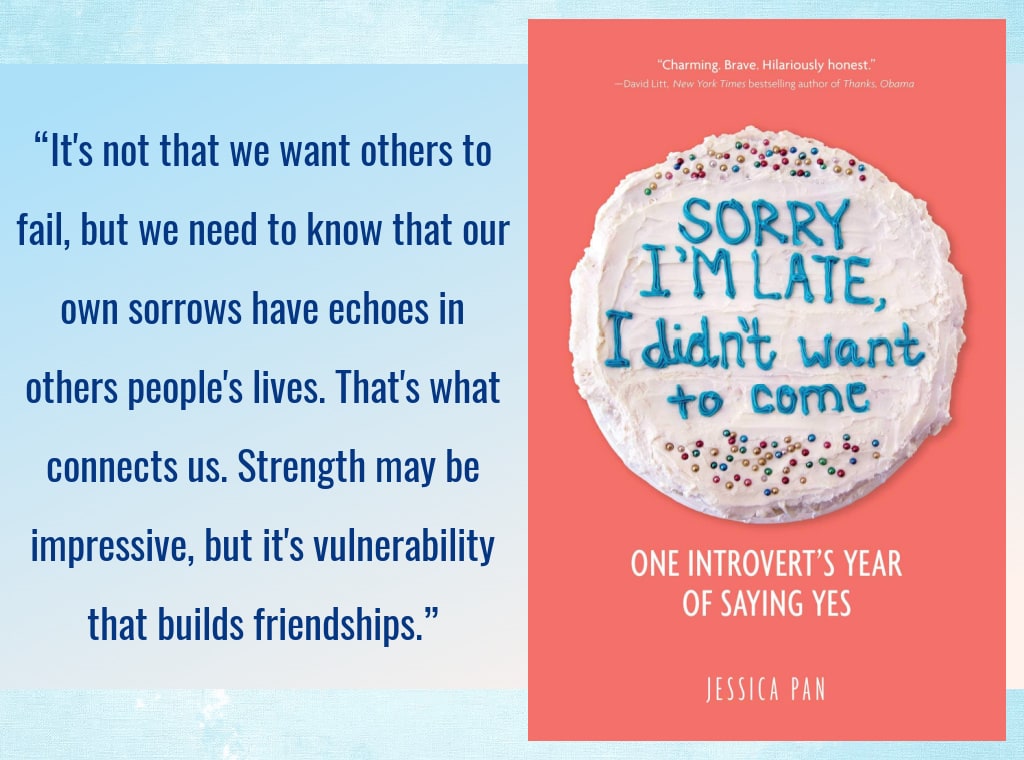
Laundry Love: Finding Joy in a Common Chore, by Patric Richardson: Slot this one under “Anne Bogel made me read it.” It’s not that I didn’t need the laundry help, because I consider myself pretty lousy at laundry (I can NEVER get those stains out), but I wouldn’t have thought to pick up a book on the subject, nor would I have thought it was possible for a book to spark JOY in the chore. But Anne has become somewhat of an enthusiast about this book so I took her advice and checked out the audiobook from the library. . . and loved it!
In this book that is a little bit memoir (and highly entertaining), but mostly tutorial, laundry aficionado Patric Richardson addresses all aspects of laundry, from which soaps to use, what wash and dry cycles work best, how to sort and fold, and how to get out every type of stain. The books combats numerous myths (for instance, did you know that bleach is ineffective, or that dry cleaning is unnecessary? That detergent is terrible for your clothes, and that clothes don’t need to be sorted by color?), and it answers every possible laundry-related question you might have. While one might think a book like this would add pressure and extra work to the chore of laundry, it does the opposite, simplifying the laundering process and making this often-dreaded task seem enjoyable. All of these life changing tricks are presented in Richardson’s endearing southern style: you’ll come for the laundry tips and stay for the tip-giver, I promise.
As I mentioned, I listened to this on audio and was shocked that a book on laundry could make such an engaging listen. I knew I wanted to have this information at hand, so after finishing I promptly purchased a physical copy for myself. This would make a great gift (for moms, college grads, friends) alongside some dryer balls or a new laundry basket.
My Rating: 5 Stars // Book Format: Audiobook
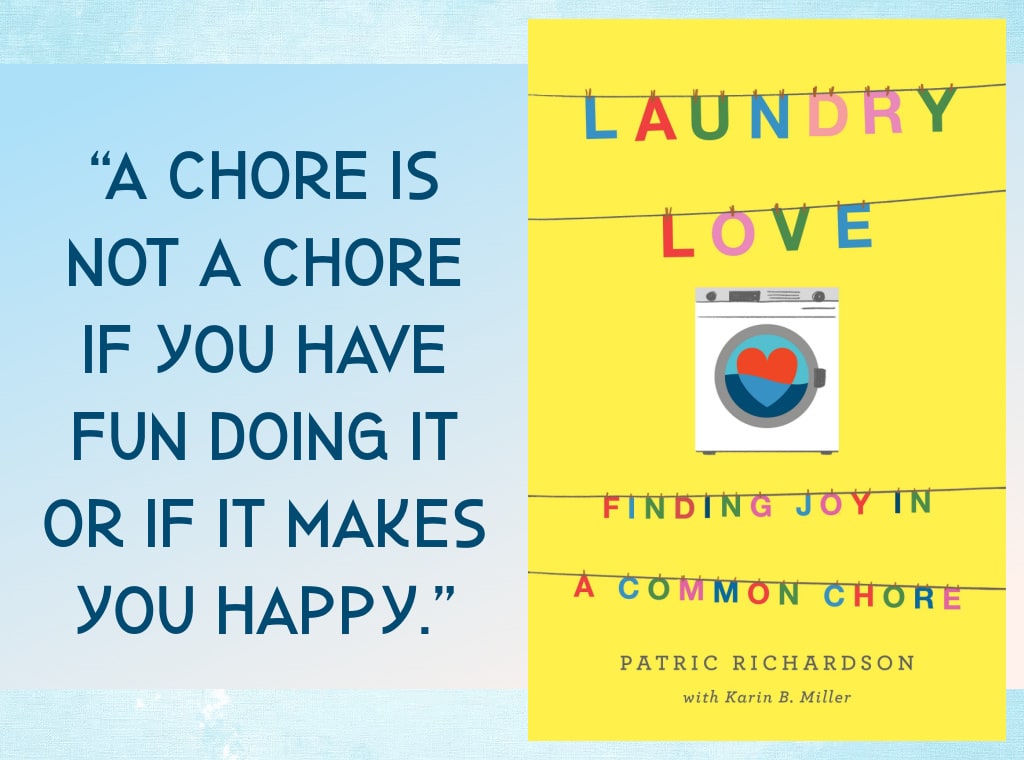
GENERAL/YA FICTION
City of Ember, by Jeanne DuPrau: More than two hundred years ago, the City of Ember was built as an underground refuge for the human race in the face of a global catastrophe. The city’s only light comes from the flood lamps mounted on top of buildings surrounding the city squares. When the lights begin to dim and the city’s food and medicine supplies start to dwindle, young Lina and Doon take it upon themselves to rescue the people of Ember. After discovering a hidden box containing instructions and directions for an exit to the city, they follow the clues that will lead to either their survival or their imminent demise.
This middle grade post-apocalyptic novel is not at all in my reading wheelhouse, and I only picked it up to satisfy the category of a Dystopia or Apocalypse novel for my library’s winter reading challenge. Though it wasn’t a great fit for me, I can imagine it would be a hit with middle grade readers. (Charleston might like this one, and I am sure I would have enjoyed it more myself if I’d read it aloud with him.) It’s mysterious but not frightening, with an intriguing premise and setting, and strong themes of courage, perseverance, and resilience. This reminded me a lot of The Giver and Hunger Games (two books I really liked, so I’m surprised this one didn’t capture my attention—perhaps it was just the wrong timing or wrong format for me with this book.)
My Rating: 3.25 Stars // Book Format: Audiobook
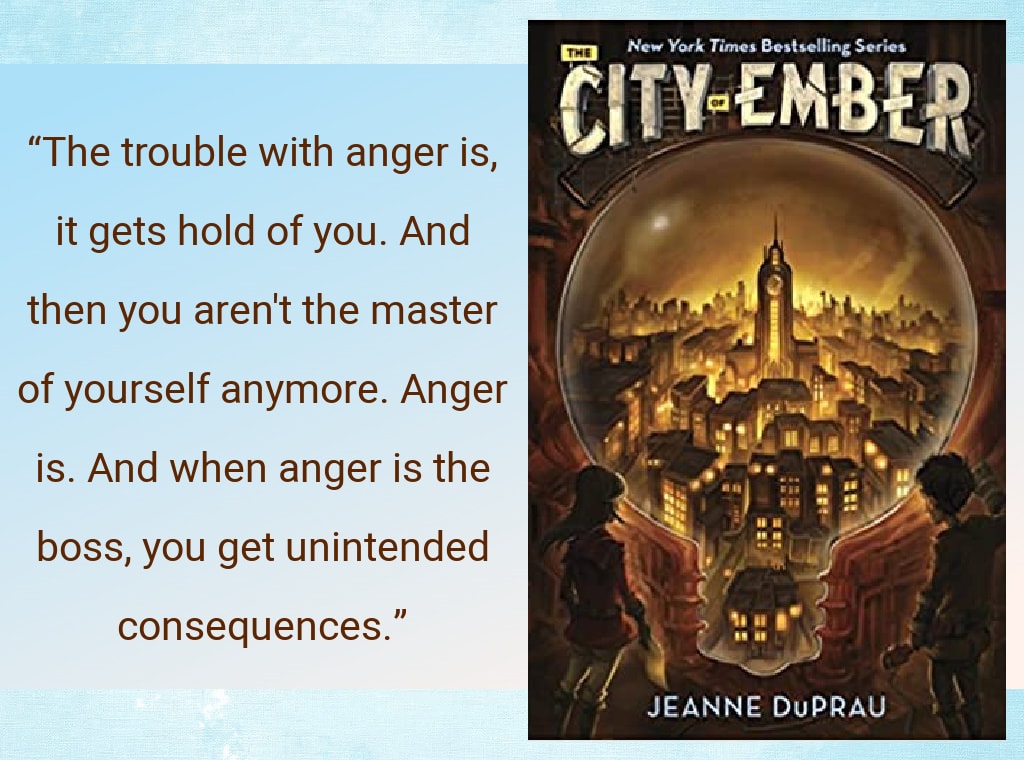
A Spindle Splintered, by Alix E. Harrow: Zinnia Gray has always loved the story of Sleeping Beauty—not for its romance or its beauty, but because she sees the story as her own. For all of her life, Zinnia (like Aurora) has been under a “curse”—in Zinnia’s case, a rare disorder that won’t allow her to live past her twenty-first birthday. When that momentous birthday arrives, Zinnia’s best friend surprises her with a magical Sleeping Beauty birthday party that becomes more magical than anticipated when Zinnia pricks her finger on the “prop” spinning wheel and falls through the multiverse into the real Sleeping Beauty’s story. There, Zinnia discovers that the fantasy she’d always thought she understood was not as it seems: villains may not have had such malicious intentions after all, and the protagonist might have been a victim in more ways than one. Zinnia comes alongside the gorgeous princess, and together they attempt to reclaim their tragic stories and create their own happily ever afters.
When I read and reviewed Beauty last month, I mentioned that I like fairy tale reimaginings that offer a fresh new take on traditional stories, and A Spindle Splintered absolutely fits that description. I was amazed with the creativity and new perspective Harrow brings to this classic fairy tale and was completely caught off by guard by the trajectory the story takes and the ways old narratives are flipped upside down. Unfortunately, it turns out that a subversive, feminist retelling with Lesbian protagonists and hyper-focus on the “politically incorrect” aspects of the story (namely, lack of agency and consent) was not quite what I was looking for. While Harrow receives full praise from me for her engaging storytelling and imaginative twists, I struggled to get on board with this modernized, agenda-driven version that sucked all of the sweetness out of a fairy tale I had previously enjoyed. (Sadly, I don’t know that I will be able to enjoy the traditional tale quite as much having seen it through this new lens.)
On a positive note, I loved learning about the many variations of the traditional Sleeping Beauty tale (I had no idea there were so many), and I found the dynamic between Zinnia and her parents and her best friend incredibly sweet. I also thought the novella length was perfect—this hits that sweet spot of telling just enough story without getting carried away or leaving me feeling like something was left out.
With all of these positive factors, combined with my excitement to read this after first hearing about it through the Currently Reading Indie Press List, this seems like a book I really should have enjoyed more, but taste doesn’t always match up with what we feel we should like on paper, and that was the case for me here. Like I said, this was just a little too forward thinking for me. However, I understand why it has been so popular with many readers, and I’m not ruling out the possibility of reading more from this author whose imagination seems to know no limits.
My Rating: 2.75 Stars // Book Format: Audiobook
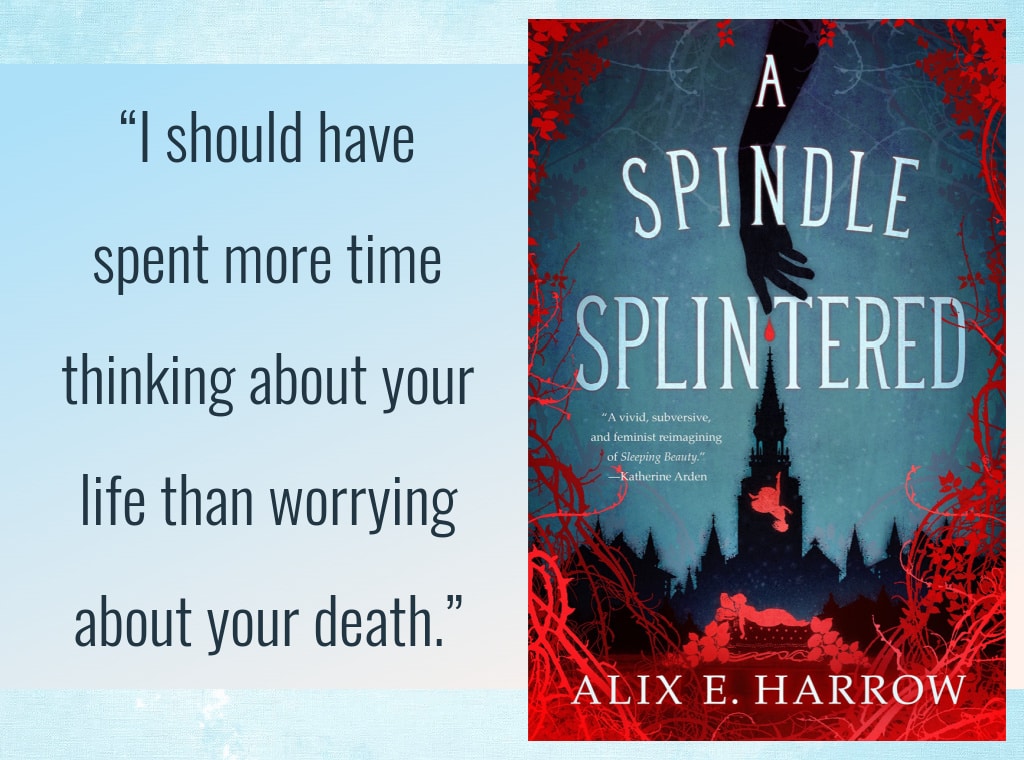
Truly Devious, by Maureen Johnson: Albert Ellingham was a twentieth century tycoon who established Ellingham Academy—a private school in Vermont for the brightest young thinkers, inventors, and artists. The campus was designed for creative inspiration, filled with riddles, secret passages, games, and opportunities for problem solving and exploration. But the mysteries turned deadly shortly after the school’s opening when, in April of 1936, Ellingham’s wife and three-year-old daughter were kidnapped. The only clue was a riddle listing methods of murder and signed “Truly Devious.” The case was never solved, and the fraught Ellingham legacy has remained with the academy for nearly one hundred years.
In the present day, true-crime aficionado Stevie Bell is delighted to have been accepted as one of the academy’s newest students. Her plan for her first year at the school is an ambitious one: she intends to solve the cold case that has haunted the school for too long. Before she can settle into the new school year, death strikes on campus and Stevie finds herself with two mysteries to solve. As she attempts to gain her footing within the case, she begins to question her own sanity and her detective prowess while wondering if she is cut out for life amid Ellingham’s quirky but brilliant student body. Toss in a potential love interest, antagonistic classmates, and skeptical professors, and Stevie Bell has her work cut out for her.
This book is a five-star premise with a three-star execution. I loved the historical mystery and the way it is woven into the present-day narrative. I was also OBSESSED with the book’s setting, the eccentric campus that is a little bit Hogwarts and a little Remote-Island à la And Then There Were None. The riddles and Sherlockian clues scattered throughout the book (and the campus itself) add such a fun touch.
I was less impressed with the present-day storyline. Stevie is a decent protagonist, though not especially original, but I didn’t care for the other students who are angsty and melodramatic, giving this a very YA feel. (To be fair, this is written for a YA audience, but I kept wishing the characters were not quite so teenager-y; the immaturity, narcism, and hollow woke-ness was not my favorite).
The book’s biggest drawback is that it does not resolve. There are clues as to how the mysteries (both past and present) may come together, but this book’s ending is very inconclusive and deeply unsatisfying. The author succeeded in getting me to commit to the next book in the series because I absolutely needed to know what would happen, but I was frustrated by the complete lack of resolution here. If you aren’t looking to commit to the whole trlogy, I wouldn’t recommend this series. However, if you’re in the mood for a fun and clever mystery similar to the Charlotte Holmes and Good Girl’s Guide to Murder series, you’ll likely love this one.
My Rating: 3.5 Stars (Rounded down to 3 stars on Goodreads) // Book Format: Kindle
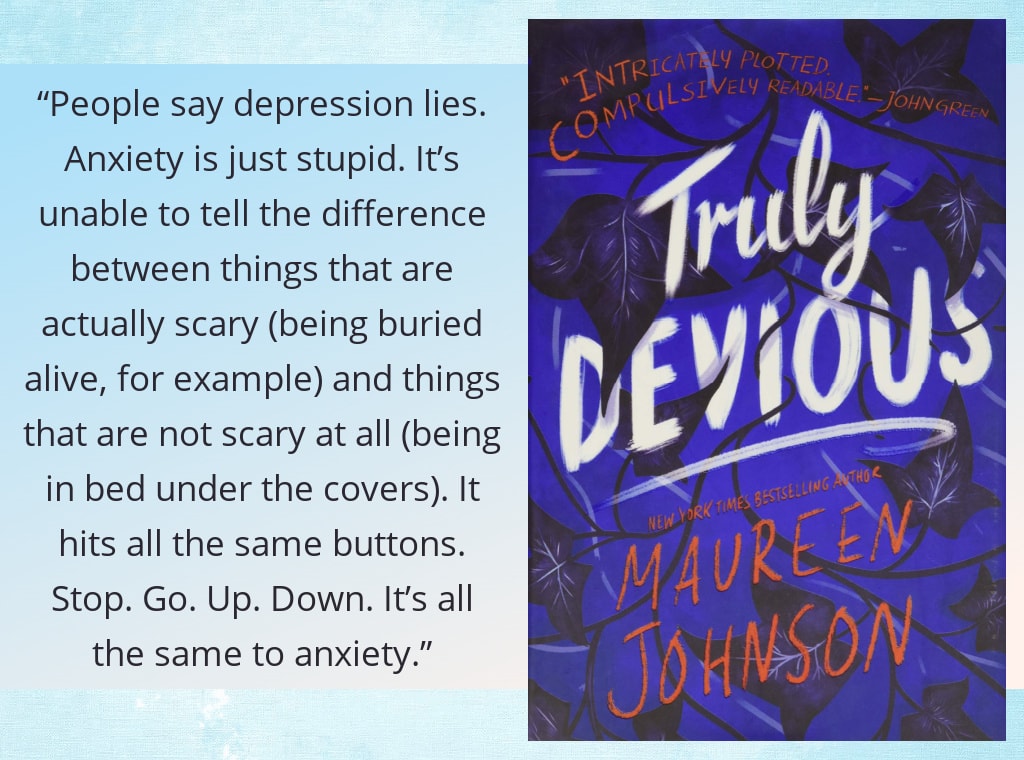
The Vanishing Stair, by Maureen Johnson: Weeks after Stevie Bell was forced to come home from Ellingham Academy following her involvement in the death of one student and the disappearance of another, the amateur detective is given a second chance at Ellingham life. Stevie is eager to return to the campus where she had felt at home, but is haunted by events of her earlier stay. As she continues to explore the original Ellingham mystery of the 1930s, in addition to the contemporary death/disappearance, Stevie comes face-to-face with death once again. Further complicating issues are a confusing love triangle, multiple conflicts of interest, and too much adolescent drama to handle.
This book felt very much like a filler in the trilogy. There is little in the way of plot or character development, and almost no resolution for the present mystery. (We do get some closure for the historic mystery, but it too ends on a cliffhanger.) The characters were even less likable in this second book, and though I continued to find the historic mystery intriguing, the present-day ones sort of lost me. Still, at this point I refused to give up on the series because I was pretty determined to see these mysteries solved!
My Rating: 3.25 Stars // Book Format: Kindle
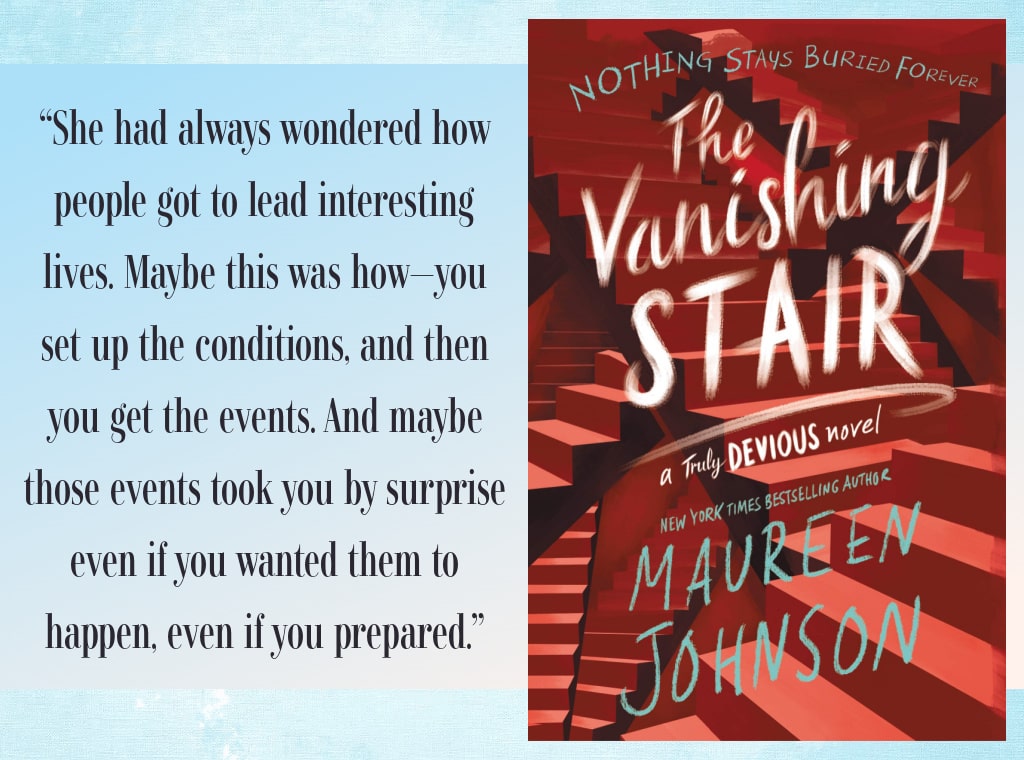
The Hand on the Wall, by Maureen Johnson: I made it through book three of this trilogy that I didn’t really want to complete but just had to finish. Back at Ellingham Academy, our amateur sleuth has pieced together the mystery that has haunted the school for ninety years. Now she must turn her attention to the present-day crimes: three people are dead, and Stevie is sure their deaths were not accidental and are somehow all connected. Stevie and her friends race against time, weather, and some dark and unknown forces to bring the case to a conclusion and restore normalcy to the school they all love.
I’m happy that I stuck with this series, and found the finale to be satisfying if not exactly the ending I was hoping for. There were still a couple of loose threads that weren’t entirely wrapped up, but for the most part I was impressed with Johnson’s creative and unexpected (but not over-the-top) conclusion to this trilogy. I still didn’t love the characters and was bothered by the political jabs and teen angst, but the unique campus setting and riveting historical mystery helped redeem these sicking points for me.
Would I recommend this series? If you’re willing to commit to all three books and are a fan of YA mysteries (tolerant of some adolescent drama and subtle leftist messaging), this will be a great reading fit. And even if this type of book isn’t normally your jam, there is enough substance to catch the interest of most mystery lovers.
My Rating: 3.75 Stars (Rounded up to 4 stars on Goodreads) // Book Format: Kindle
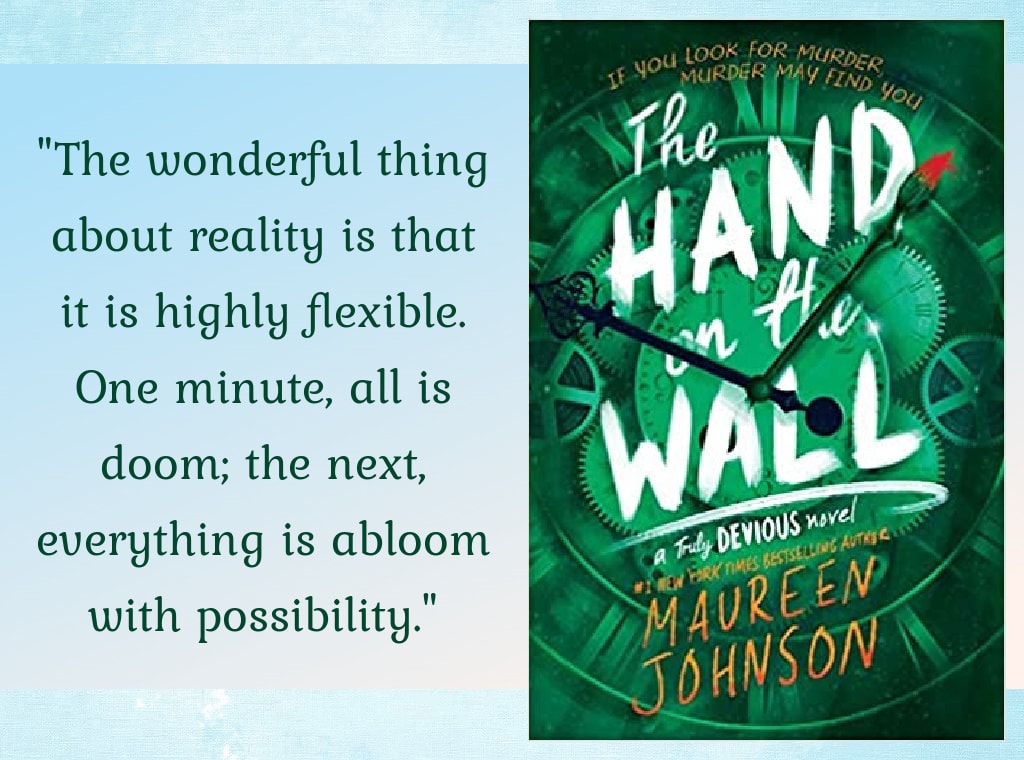
MIDDLE-GRADE READ-ALOUDS
The Kitchen Madonna, by Rumer Goddard: Introverted nine-year-old Gregory and his precocious younger sister have not had much consistency in their lives. Nannies and housekeepers have come and gone, and their parents are too busy with their careers to pay them much attention. So Marta, with her steady ways and comforting Ukranian accent, provides welcome stability to their home. But when they realize Marta is unhappy and homesick for the icon that made her Ukranian kitchen feel like home, Gregory grows determined to provide her with a “good place” in their own London kitchen. Unfortunately such an icon is difficult to come by, and after scouting out numerous options, Gregory realizes it is up to him to create an icon for Marta. Thus begins a crafting mission that is as much adventure as creative outlet—an adventure that leads him to form new friendships, break out of his shell, and find new purpose and meaning for himself and his family.
This book was a really slow start and we had a hard time getting into the story. It picks up towards the end, and there are wonderful lessons about sacrifice, persistence, and ingenuity. The portrayal of Marta is a little dated (the was written in 1956, and this non-English speaking character from a very different background would be less of a prototype in a contemporary novel). But I enjoyed seeing Gregory’s character development, and the art aspects brought some interesting cultural discussions to our read-aloud experience.
This was not my favorite read-aloud of the year, but Charleston loved it and I did appreciate that it was something a little different from a lot of the books we have read this year.
My Rating: 3.5 Stars (Rounded down to 3 stars on Goodreads) // Charleston’s Rating: 5 Stars // Book Format: Print
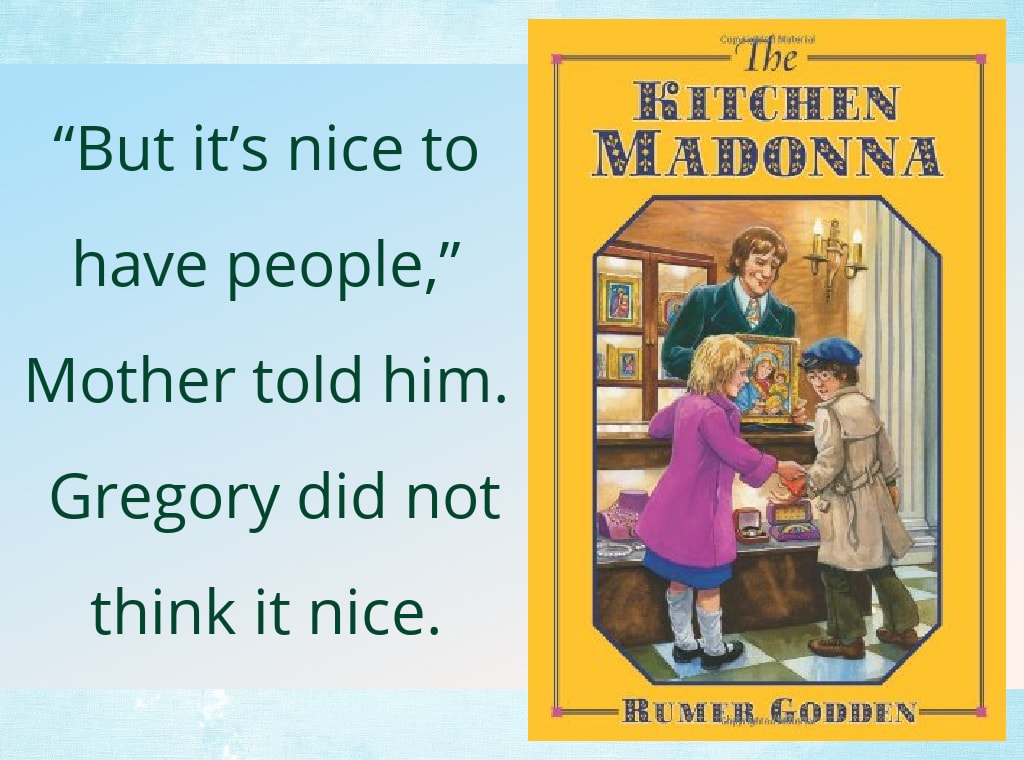
No Children, No Pets, by Marrion Holland: When they inherit an apartment complex near the beaches of Florida, the Sanders family heads south to take possession of the building. Jane and Don, their four-year-old sister Betsy, and their widowed mother are surprised by what they find: a poorly maintained facility filled with prickly senior citizens who are not happy with the Sanders’ defiance of the complex’s No Children, No Pets policy. Despite the icy welcome, the children quickly make themselves at home, befriending a bright young boy who always seems to be hanging around, and working to improve the complex and possibly growing close with some of the residents. As their time in Florida unfolds, the children stumble into a handful of mysterious circumstances. All is not what it seems—it just might be better!
This is going at the top of the list of this year’s read-alouds. Charleston and I were both delighted by these charming characters, their humorous antics, and the endearing relationships they form. The summer beach setting is fun and believable, and though the book was written in the 1950s, it feels more vintage than dated. There are some surprising plot turns I didn’t see coming, and I loved the themes of found family and giving strangers the benefit of the doubt. The book led to some great discussions about when/why/how we make assumptions about people who are different from us, and why this is a bad habit to get into.
I loved that the children in this book are smart, industrious, and resourceful but not sneaky or disrespectful. This gave me strong Boxcar Children vibes, with maybe some Vanderbeekers thrown in. Charleston and I both highly recommend this one.
My Rating: 5 Stars // Charleston’s Rating: 5 Stars // Book Format: Print
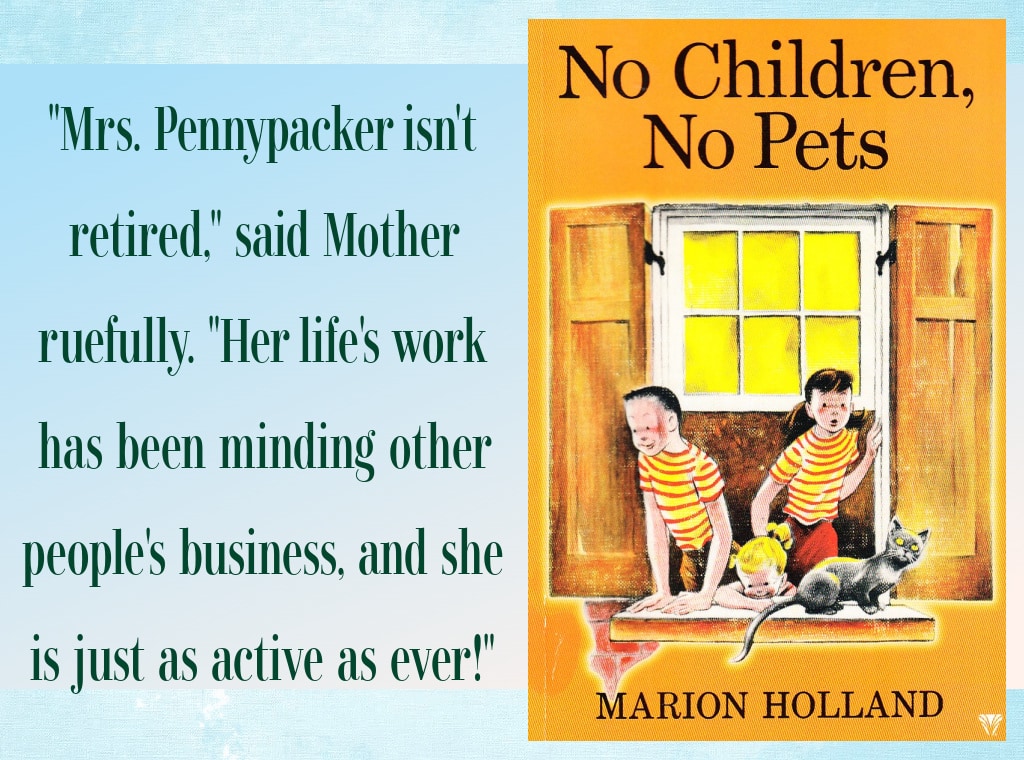
Have you read any of these titles? What did you think? What have you been reading lately?